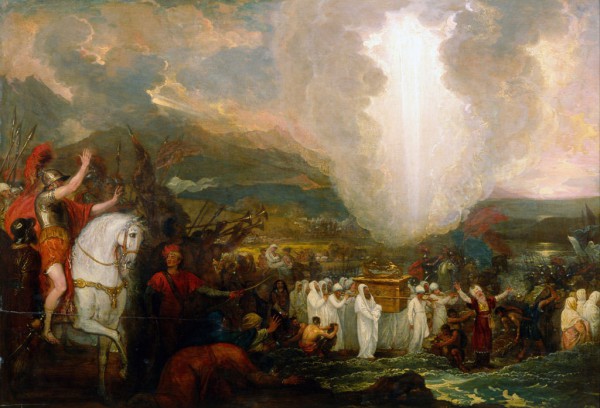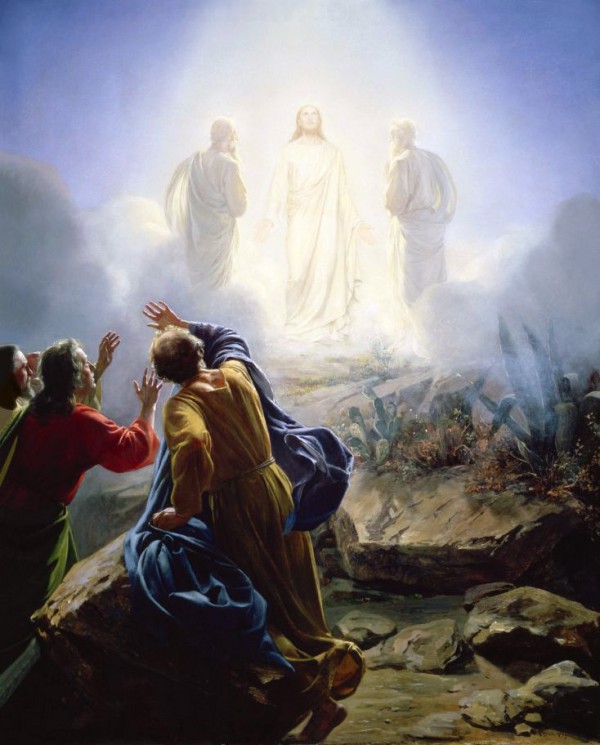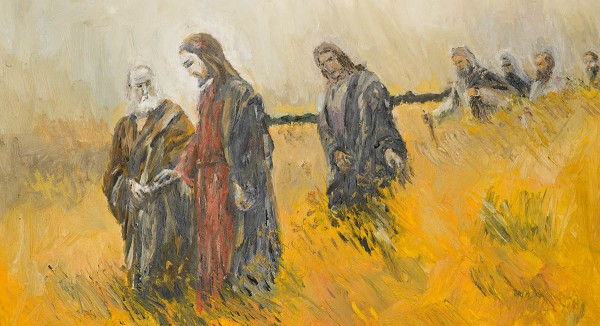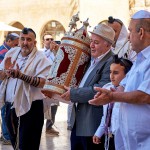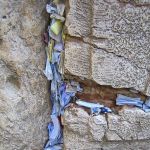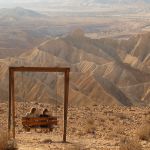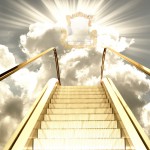“The Word became flesh and made His dwelling among us. We have seen His glory, the glory of the one and only Son from the Father, full of grace and truth.” (John 1:14)
Would you like to dwell in God’s glorious presence?
Moses did. The Israelites in the wilderness did. And so did a handful of Jewish followers of Yeshua.
The Jewish People even had a unique word for His presence not found in the Hebrew Scriptures.
That word is Shekhinah – שכינה.
Let’s take a closer look at this Jewish expression and how Yeshua Himself demonstrated God’s Shekhinah Glory dwelling among His people.
We’ll also see how we can invite His presence into our lives today.
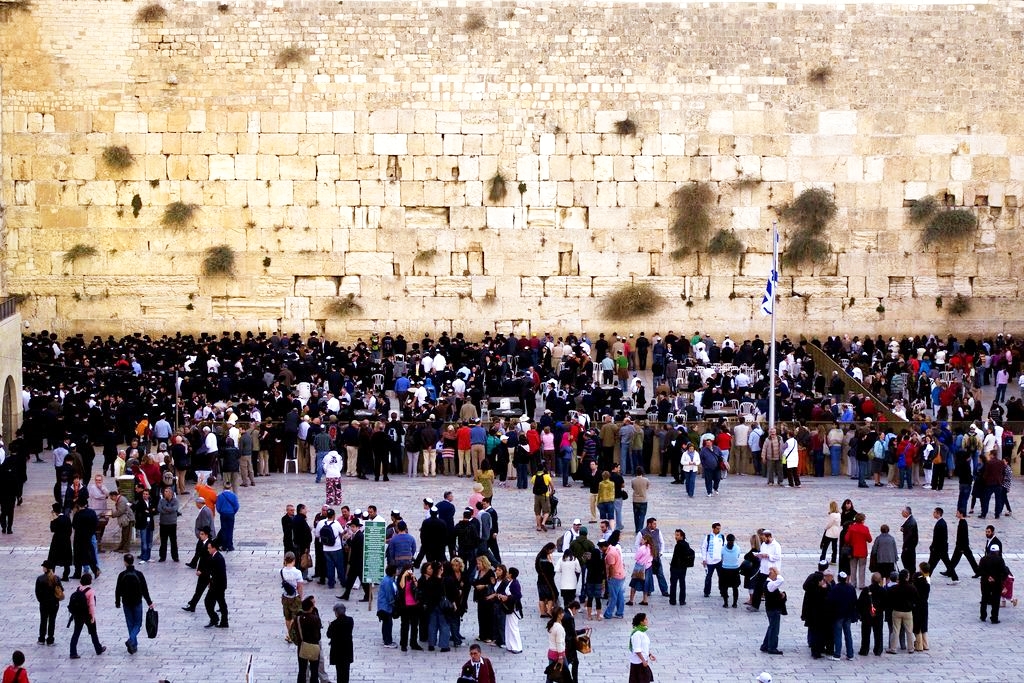
Jew and Gentile alike visit the Western (Wailing) Wall in Jerusalem where many believe the presence of the Lord can be experienced.
God Desires to Dwell with Us
Throughout the Torah (first five books of the Bible), it seems to be a deep desire of our wonderful, personal, compassionate Creator to not just visit His people from time to time, but to be among them. God tells Moses, “Let them make Me a sanctuary, that I may dwell [shachan] in their midst.” (Exodus 25:8)
As Israel wandered through the desert, God’s Divine Glory dwelled in the wilderness tabernacle, which in Hebrew is mishkan – מִשְׁכַּן.
The root of mishkan is shakan, which means dwell. From this root comes the word Shekhinah שכינה, which literally means dwelling or settling,
In the Jewish writings of Yeshua’s (Jesus’) day, Shekhinah came to mean the Dwelling Presence of God.
The Shekhinah even became one of the many substitutes for God’s personal, holy name — YHVH.
We see this in translations of the Hebrew Scriptures to Aramaic (the Targums) that the priests read to the people every Shabbat.
For instance, when YHVH walked amidst the camp of Israel (Deuteronomy 23:15), the Jewish People heard that the “Shekhinah of the Lord” walked among them. (Targum Palestine and Targum Onkelos)
Today, in Jewish thought, His Shekhinah is considered to be the “created splendor of light which sometimes takes on human form.” (Encyclopedia Judaica, Vol. 14, pp. 1349–1351)
We see this when an “angel of the LORD” comforted Hagar in her distress (Genesis 13). The Jewish People, however, heard that “the glory of the Shekhinah of the LORD” was revealed to her. (Targum Palestine)
One of the most common ways that this Shekhinah Glory was manifested to the people of Israel was through light.
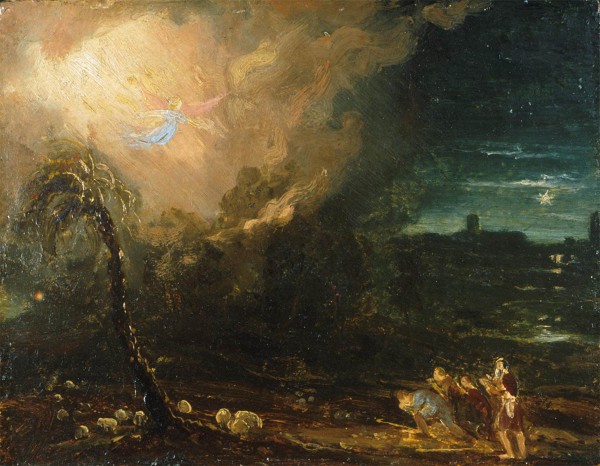
The Angel Appearing to the Shepherds (1831), by Thomas Cole depicts the Shekhinah Glory that accompanied the angel as he announced the birth of the Savior, Yeshua to the shepherds (Luke 2:9).
The Shekhinah as God’s Glorious Light
“Show me Your glory,” Moses told the LORD (YHVH).
He answered, “I will make all my goodness pass before you and will proclaim before you my name YHVH.” (Exodus 33:18–19)
In this intimate exchange between YHVH and His servant Moses, we see that the presence of YHVH and His Glory are one.
In the Scriptures, this Glory is often visibly seen. God’s face radiates such intensely holy light that no man can see His face and still live. This is why God hid Moses’ eyes as He passed by him (Exodus 33:19–23).
So spectacular is His Glory that just being in God’s presence made Moses’ own face radiate, too! (Exodus 34:29–35)
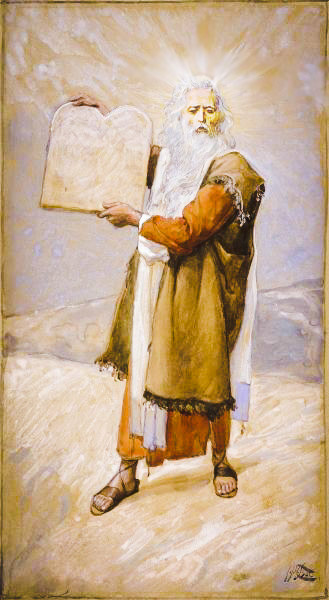
Moses and the Ten Commandments, by James Tissot, depicting Moses with a radiant face (public domain, modified)
The Shekhinah in Yeshua
While Yeshua ministered throughout Israel, the Jewish People were quite familiar with the concept that the Shekinah Glory of God is God Himself. In the Book of Joel (3:17), for instance, God said,
“You shall know that I, the Lord your God, dwell in Zion, My holy mountain.”
But the people heard this translation:
“You shall know that I, the Lord your God, caused my Shekhina to dwell in Zion, my holy mountain.” (Targum Jonathan)
Perhaps because of this familiarity, Yeshua chose a mountain as the setting to reveal God’s glorious Shekhinah brilliance before the eyes of His disciples Peter, James, and John: “His face shone like the sun, and His clothes became dazzling white.” (Matthew 17:1–8)
The disciples understood that this light emanating out of Yeshua was a manifestation of God’s Glory, for the esteemed Rabbi Gamaliel of the first century said that “as the sun … gives light to all the world, so in a much greater degree does the Shekinah.” (Sanhedrin 39a)
The transfiguration helped the disciples see that Yeshua “is the reflection of God’s glory and the exact imprint of God’s very being.” (Hebrews 1:3)
To seal this truth, “suddenly a bright cloud overshadowed them, and from the cloud a voice said, ‘This is My Son, the Beloved; with Him I am well pleased; listen to Him!’” (Matthew 17:5)
The Apostle Paul, was a student of Rabbi Gamaliel and, therefore, understood that God’s Divine Presence dwelled in such magnificent light.
So, what better way to convince this dedicated Pharisee that Yeshua is the physical manifestation of God than to appear to him in such a level of Shekinah glory that it throws him off his horse and blinds him.
“As he neared Damascus on his journey, suddenly a light from heaven flashed around him. He fell to the ground and heard a voice say to him, ‘Saul, Saul, why do you persecute Me?’” (Acts 9:3-4)
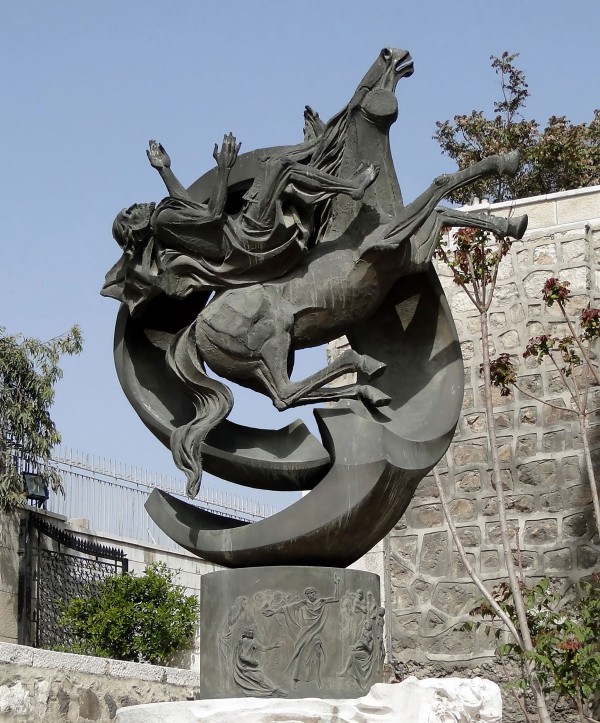
Statue of Saint Paul falling off his horse at the Chapel of St. Paul in Bab Kisan (Kisan Gate), which is one of the eight ancient city-gates of Damascus, Syria. and is said to be the escape route of St Paul.
Sometimes Yeshua visibly displayed this Shekhinah Glory, and other times He proclaimed it:
“I am the light of the world,” Yeshua said while teaching at the Temple. “Whoever follows Me will never walk in darkness but will have the light of life.” (John 8:12)
And again, in Jerusalem shortly before His execution, He said to the crowds gathered for the upcoming Passover festival:
“If you walk in the darkness, you do not know where you are going. While you have the light, believe in the light, so that you may become children of light.” (John 12:36)
Sadly, many preferred to stay in the dark. “Although He had performed so many signs in their presence, they did not believe in Him.” (John 12:37)
God’s presence is AWEsome. While most of us have not experienced it in the visible way that the apostles or early Israelites did, we can invite Him to dwell with

us in a very tangible way, as long as the darkness does not overtake us, too. The unfolding of your words gives light; it imparts understanding to the simple.” (Psalm 119:130)
With Whom Does the Shekhina Dwell Today?
While we are still in our earthly abodes, we are called the Temples of God, in which the Shekhina is invited to dwell and be seen by others. The Prophet Isaiah offers us a clue as to whom God would like to live with:
“I dwell in the high and holy place, and also with him who is of a contrite and lowly spirit.” (Isaiah 57:15)
In other words, God keeps the humble close to Him, and He stays far away from the proud (Psalm 138:6).
It is more likely that the humble will desire to be in His presence as well. The Rabbis write that “when two sit together and meditate on the divine revelation (the words of the Torah), the Shekinah abides between them.” (mAvot 2:3)
Likewise, Yeshua, who is the Word of God made flesh in John 1:14, said,
“Where two or three are gathered in My name, I am in their midst.” (Matthew 18:20)
When we keep the Word of God close to our hearts and abide by it, we can experience the Presence of God.
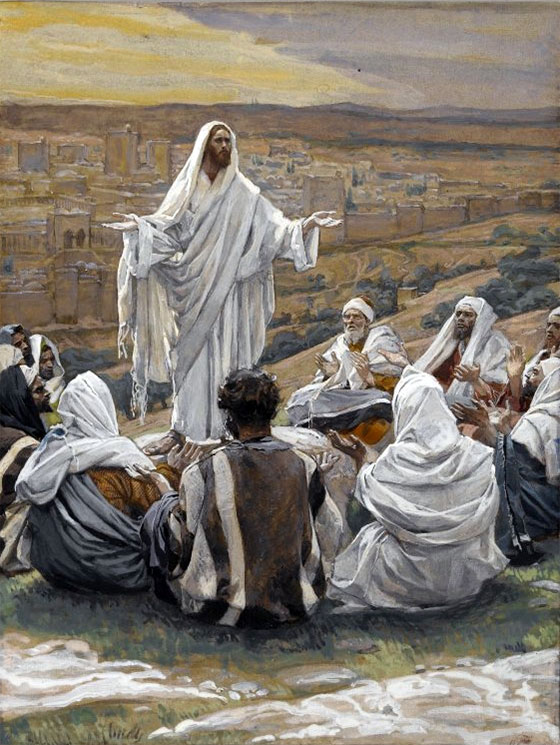
The Lord’s Prayer, by James Tissot (1836-1902), depicting Yeshua (Jesus) teaching the disciples how to pray (Luke 11:1-13)
The Shekhina Can Also Leave Us
The Rabbis also taught that the Shekhinah of God would leave under certain circumstances:
“Whosoever sins in secret or walks with a proud and haughty bearing ‘crowds out the feet of the Shekhinah.’” (Berachot 43b)
It is because of sin, that the Prophet Ezekiel saw God’s Glory completely leave the Temple (Ezekiel 10:19). Before the Shekhinah left, God asked Ezekiel, “Have you seen what the elders of the house of Israel are doing in the darkness?” (Ezekiel 8:12)
God let Ezekiel peer into the Temple where he saw “every sort of creeping thing, abominable beasts, and all the idols of the house of Israel, portrayed all around on the walls.” (verse 10)
When we disobey the Word of God, we can’t expect God’s Glory to remain in us.
“For what fellowship has light with darkness?” (2 Corinthians 6:14)
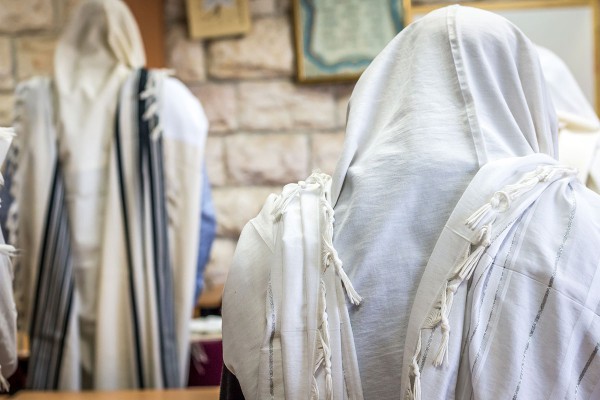
The 17th blessing of the daily Amidah (Standing) prayer expresses the longing in the Jewish heart that the Shekhinah Glory will one day return: “Blessed are You, God, who returns His Presence (Shechinato) to Zion.”
Discerning the True Shekhinah
When Yeshua performed His first public miracle, changing water into wine at the wedding in Cana, the Apostle John said that He also “revealed His Glory [Doxa in Greek and Kavod in Hebrew], and His disciples believed in Him.” (John 2:11)
A miracle without the Glory of God is not a miracle of God.
This is an important truth to keep in mind, since it is prophesied that as the Day of the Lord draws near, “False messiahs and false prophets will appear and perform great signs and wonders to deceive, if possible, even the elect.” (Matthew 24:24)
It is up to each of us to discern what is and is not God’s manifested Glory so that we may not be deceived.
While many focus on the miracles themselves as proof that God’s presence is with a person, we should instead look to the fruit they produce.
Are their goals aligned with God’s kingdom goals? Are their daily lives aligned with God’s instructions on how to live life daily?
Yeshua said, “Very truly I tell you, whoever believes in Me will do the works [ergon] I have been doing, and they will do even greater things than these, because I am going to the Father.” (John 14:12)
The word works (ergon in the Greek), refers to accomplishing tasks, so it may be referring here to living out God’s instructions in all its splendor. Signs and wonders may be part of it, but seeing someone who was once in the darkness now live a just life is also miraculous, and that is a true sign that the light of Yeshua resides in them.
Yeshua is the Light of God’s Glory and so are the words and commands of God. We sometimes chase the spectacular without being transformed in our character and simply bearing fruit.
Of course, some transformations don’t happen in one day. They take time, but it is this transformation that we are to continuously strive for. And He sent us His Ruach HaKodesh (Holy Spirit) to help us.
“All of us, with unveiled faces, seeing the glory of the Lord as though reflected in a mirror, are being transformed into the same image from one degree of glory to another; for this comes from the Lord, the Spirit.” (2 Corinthians 3:18)
May we all earnestly seek the manifest glory of God dwelling in us until the day we will bask in the light of His glory when the Shekinah of God and the Lamb (Yeshua) provide all the light we need in the heavenly city, the New Jerusalem. (Revelation 21:23)
And it will be said:
“Behold, the dwelling place of God is with man.” (Revelation 21:3)
Be blessed in His wonderful Shekhinah Presence





